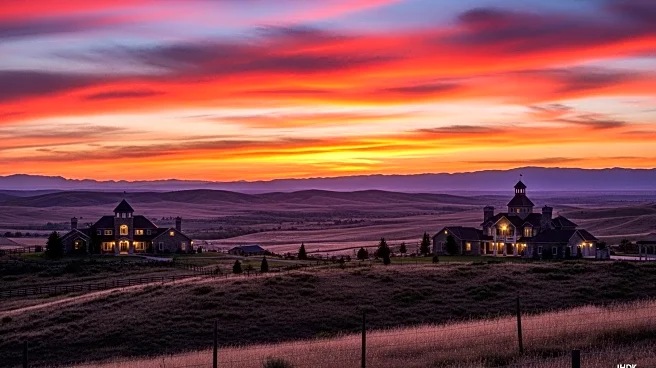What is the story about?
What's Happening?
In Western states, agricultural properties benefit from preferential tax treatment designed to support generational farmers and ranchers. However, the increasing interest from wealthy buyers in owning vast ranches has brought attention to these tax breaks. The popularity of the Western ranching lifestyle, fueled by media portrayals such as the TV show 'Yellowstone,' has led high-net-worth individuals to invest in ranch properties as legacy assets or retreats. This trend has raised questions about whether the tax laws are preserving a traditional way of life or subsidizing luxury real estate for billionaires. In states like Montana, agricultural tax breaks can result in multimillion-dollar estates receiving substantial tax discounts, highlighting disparities in taxation.
Why It's Important?
The issue of tax breaks for luxury ranches is significant as it highlights the challenges in balancing the preservation of agricultural heritage with modern real estate dynamics. The preferential tax treatment for ranches and farmlands is intended to sustain working lands, but the influx of wealthy buyers seeking tax advantages raises concerns about fairness and equity in taxation. State legislators face the complex task of distinguishing between luxury estates and genuine working ranches to ensure fair taxation. The debate over tax policies reflects broader discussions on economic inequality and the need for thoughtful reforms to address disparities in property taxation.
Beyond the Headlines
The clash between legacy ranching and luxury real estate underscores the cultural and economic shifts in the American West. The 'Yellowstone effect' exemplifies how media portrayals can influence real estate trends and tax policy debates. As states grapple with these issues, there is a need for careful consideration of the ethical and cultural dimensions of tax reforms. Ensuring that tax policies support genuine agricultural practices while addressing loopholes for luxury estates is crucial for maintaining the integrity of the region's heritage and promoting sustainable land use.
















